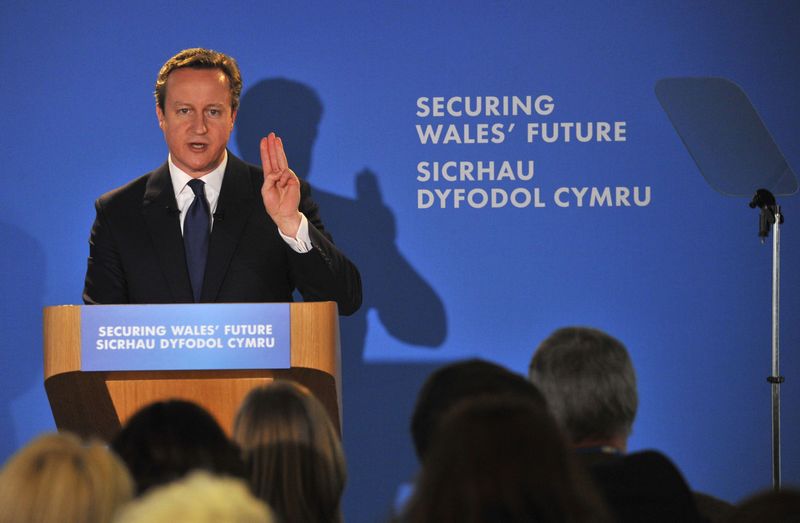By Kylie MacLellan
LONDON (Reuters) - Britain set out plans on Friday to give Wales greater powers, including to issue bonds and control fracking licences, in a further step to dismantle its centralised system of government.
With just over two months until a national election, the issue of devolution to the United Kingdom's constituent parts has risen to the fore after a last-ditch promise to hand more powers to Scotland helped swing a close referendum in September.
That resulted in a deal for the biggest transfer of powers to Scotland from London since 1999, when a Scottish parliament was set up, and spurred demands for similar powers from England, Wales and Northern Ireland which critics fear could trigger the beginning of the end of the United Kingdom.
"We are delivering on devolution in every part of the UK," Prime Minister David Cameron said on Friday.
Wales, like Scotland and Northern Ireland, elects representatives for its own regional body as well as for the Westminster parliament. It has a budget of 15 billion pounds a year but no powers over how money is raised.
"We want to deliver new powers to Wales so that more decisions are taken closer to the people and give greater responsibility to the Welsh Assembly," said Cameron.
"That means those who spend taxpayers' money must be more responsible for raising it."
The measures announced on Friday include greater powers in areas such as energy, including decisions over licensing for onshore oil and gas extraction, as well as transport and the environment.
Wales will also have the power to set business rates and issue bonds to borrow for capital expenditure. The British government said it would introduce a floor to the level of funding for Wales in return for an expectation the Welsh government would call a referendum on whether voters would support giving it the power to vary income tax.
Leanne Wood, the leader of Welsh nationalists Plaid Cymru, welcomed the powers but said they did not go far enough and said the approach by Britain's main political parties to Wales had been in "stark contrast" to Scotland.
"There is no good reason at all why Wales should have third rate devolution," she told BBC Radio. "It is time we were treated equally. Wales has been left behind and that has to end and this is a missed opportunity in that respect."
